3 Minute Guides
Download our free quick-read factsheets outlining key points and strategies on how to save tax.
All our 3-minute guides relate directly back to our in-depth tax report topics.
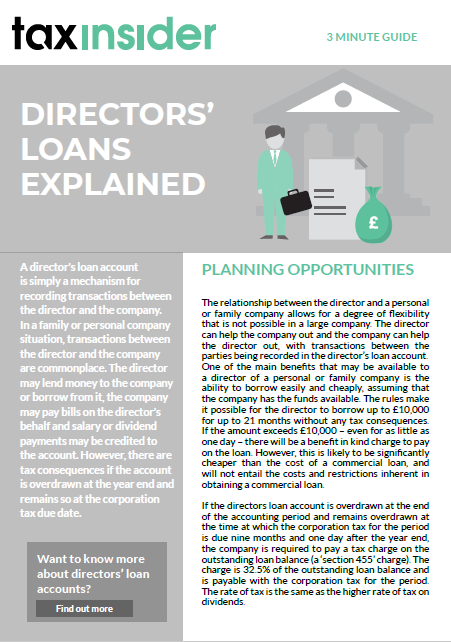
Directors' Loan Accounts
In a family or personal company, transactions between the company and the individual directors are commonplace. A director’s loan account is simply a mechanism for recording the transactions that take place. If the company is a close company and the director’s account is overdrawn at the end of the year, tax consequences may arise.
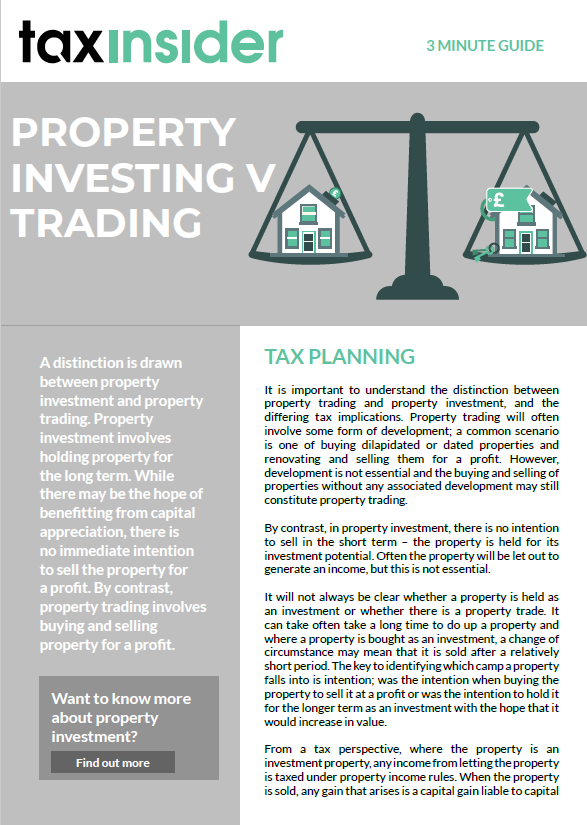
Property Investing
Property investment involves holding property for the long-term, generally with the hope or intention of benefiting from capital appreciation. By contrast, property trading refers to the buying and selling of property or land with a view to making a profit. It is important to identify the camp into which the property falls as the tax rules are different.
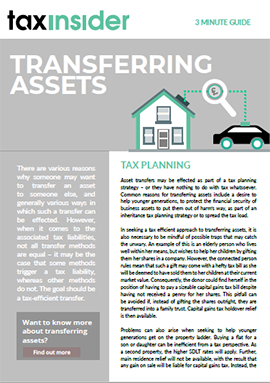
Transferring Assets
There are various reasons why someone may want to transfer an asset to someone else, and generally various ways in which such a transfer can be affected.
However, when it comes to the associated tax liabilities, not all transfer methods are equal – it may be the case that some methods trigger a tax liability, whereas other methods do not. The goal should be a tax-efficient transfer.
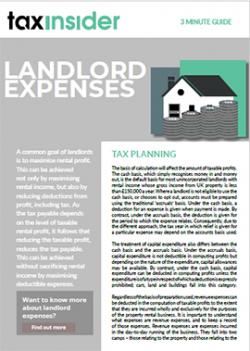
Landlord Expenses
A common goal of landlords is to maximise rental profit. This can be achieved not only by maximising rental income, but also by reducing deductions from profit, including tax. As the tax payable depends on the level of taxable rental profit, it follows that reducing the taxable profit, reduces the tax payable. This can be achieved without sacrificing rental income by maximising deductible expenses.
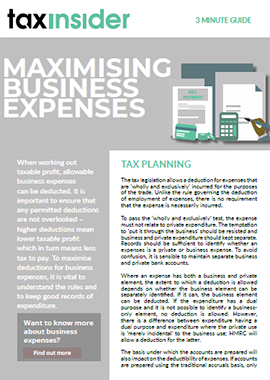
Maximising Business Expenses
When working out the taxable profit, allowable business expenses can be deducted. It is important to ensure that any permitted deductions are not overlooked – higher deductions mean lower taxable profit which in turn means less tax to pay. To maximise deductions for business expenses, it is vital to understand the rules and to keep good records of expenditure.
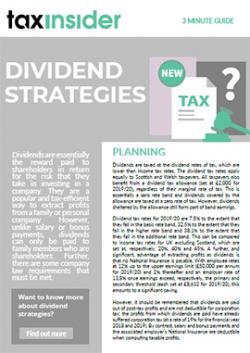
Dividend Strategies
Dividends are essentially the reward paid to shareholders in return for the risk that they take in investing in a company. They are a popular and tax-efficient way to extract profits from a family or personal company. However, unlike salary or bonus payments, dividends can only be paid to family members who are shareholders.
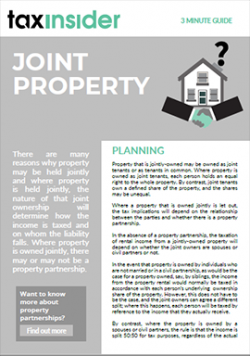
Joint Property
There are many reasons why property may be held jointly and where property is held jointly, the nature of that joint ownership will determine how the income is taxed and on whom the liability falls. Where property is owned jointly, there may or may not be a property partnership.
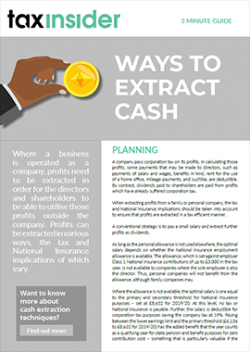
Ways to Extract Cash
If you operate your business as a company, you will pay corporation tax on any profits that your company makes. You may also pay tax on the profits when you take them out of the company. This short but informative guide looks at how to extract profits in a tax and NIC-efficient manner.
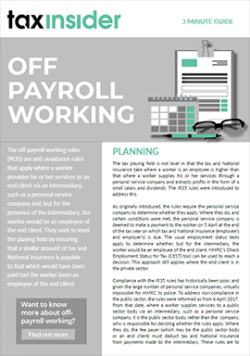
Off-payroll working
The off-payroll working rules (IR35) are anti-avoidance rules that apply where a worker provides his or her services to an end client via an intermediary. They seek to level the playing field by ensuring that a similar amount of tax and National Insurance is payable to that which would have been paid had the worker been an employee of the end client.
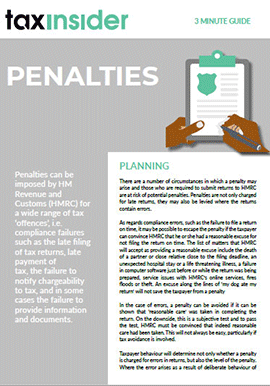
Penalties
Penalties can be imposed by HM Revenue and Customs (HMRC) for a wide range of tax ‘offences’, i.e. compliance failures such as the late filing of tax returns, late payment of tax, the failure to notify chargeability to tax, and in some cases the failure to provide information and document.
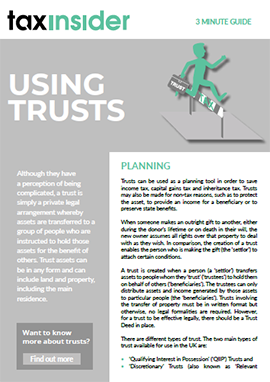
Using Trusts
Although they have a perception of being complicated, a trust is simply a private legal arrangement whereby assets are transferred to a group of people who are instructed to hold those assets for the benefit of others. Trust assets can be in any form and can include land and property, including the main residence.
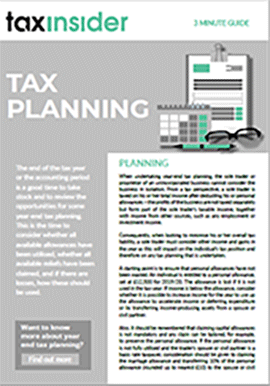
Tax Planning for Businesses
As the end of the tax year or the accounting period approaches, it is a good time for businesses to take stock and review their affairs. No-one likes to pay tax unnecessarily, and a little time spent considering the tax position ahead of the year-end can realise considerable tax savings.



